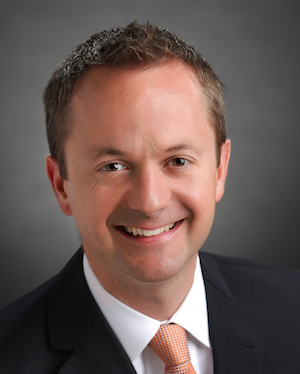More time in classroom equals more learning, but the details matter
Teaching is the hardest and most noble work there is.
The Cornerstone Schools have been serving the students of southeast Michigan for 25 years. From 167 students in the first year, we now serve over 2,700 students in our private and charter schools.
Academic excellence, sound character and well-rounded students have guided us every step of the way, and thus when the first Cornerstone Charter Schools (CCS) began six years ago as an offshoot of the Cornerstone Academies, many of the same features that had been effective in a private-school setting were integrated into the new public charter model.
Over time, however, we began to notice signs that one of the original distinguishing features of Cornerstone – the extended school year – was not working in the charters as originally designed.
Teachers had identified a pattern of inconsistent attendance, especially early in the school year, when our students’ siblings and friends who did not attend CCS were still on summer vacation. Increasingly, teachers were having to repeat lessons, and even re-teach whole blocks of material to ensure that absent students were able to catch up with the rest of the class.
As a part of my regular “CEO Roundtables” (where I invite teachers to an optional meeting where they can share what is going well and not so well), it became evident that our extended school year was leading to teacher burnout. And we knew that we are nothing without our amazing teachers.
At the same time, we began to hear feedback from potential teaching applicants that the length of the school year was a negative factor in their decision-making process. It became clear that we were limiting our pool of applicants, and that some high-quality candidates were not even applying for CCS positions. We became increasingly concerned that the year-round model was not meeting the needs of our teachers, and that, ultimately, we were doing our students a disservice.
We did not want to rush into any decisions, however, so we conducted a series of focus groups, surveys and other information gathering to get a better understanding of how all of our stakeholders felt about the extended school year. The results of this process confirmed our initial concerns, and also helped us appreciate the fact that parents really valued the extra learning time for their students.
While we recognized the need to make a change, the idea of simply lessening the number of days did not align with our mission. Ultimately, the CCS board approved making the switch from an extended school year to an extended school day beginning with the '16-17 school year. (The private Cornerstone Schools Association will remain on an 11-month school year.)
The new format will bring our yearly schedule in alignment with more traditional school calendars, and our decision to extend the school day by approximately 40 minutes will provide our students with the extra learning time that is such a valuable part of their educational experience. To maximize the impact of the additional instructional time, we implemented new "achievement blocks" designed to provide differentiated small-group instruction that will allow us to meet students where they are academically and focus on growth.
Feedback so far has been positive. We believe our approach to the decision-making process, our commitment to securing the input and perspective of all parties involved, and our desire to achieve an outcome that was best for our students, teachers and families contributed to that positive reception. Our culture of collaboration and teamwork ensured that we were able to hear and value teacher input, and we are grateful to our board for their support.
At CCS, we believe teaching is the hardest job in the world. It is sacred work that is physically, mentally, and emotionally taxing. The extended school year model we used simply did not provide the much-needed and much-deserved time for teachers to rest, rejuvenate, and prepare for another school year. We wanted to make sure teachers understood how much we valued their service and dedication.
As we continue to grow, our team of talented and motivated educators continues to grow. We are confident that our calendar change will enhance our ability to better serve our students, as well as to honor the work of our team as they perform the hardest and most noble of all work.
See what new members are saying about why they donated to Bridge Michigan:
- “In order for this information to be accurate and unbiased it must be underwritten by its readers, not by special interests.” - Larry S.
- “Not many other media sources report on the topics Bridge does.” - Susan B.
- “Your journalism is outstanding and rare these days.” - Mark S.
If you want to ensure the future of nonpartisan, nonprofit Michigan journalism, please become a member today. You, too, will be asked why you donated and maybe we'll feature your quote next time!


 Tom Willis is CEO of Cornerstone Charter Schools.
Tom Willis is CEO of Cornerstone Charter Schools.